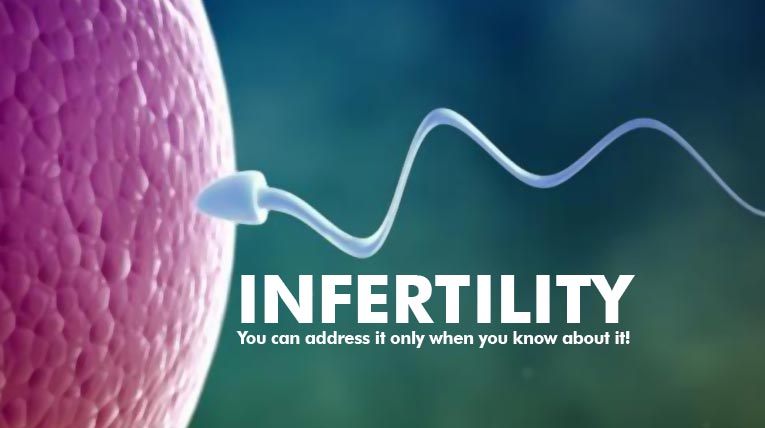FAQs
Female-Infertility
A recent survey conducted on American women aged between 18 to 59 revealed that majority of women suffer from hypoactive sexual desire disorder (HSDD) or low sex drive. Other sexual problems include pain during intercourse, and difficulty with orgasm.
 The American Psychiatric Association (APA) defines HSDD as the deficiency of sexual fantasies and low desire for sexual activity. The definition is obscure as the APA admits that there can be substantial differences in sexual interest levels among women. The aforementioned survey stated that about 37% of women think about sex a few times a month. However, only 33% think about sex 2-3 times a week or more. If a women is happy, she will think more about sex as compared to an unhappy women.
Another common problem is female orgasmic disorder or Difficulty with orgasm. Not all women have orgasms during sex. The survey by APA also highlights that about 29% of women admitted to always have orgasms during sex. It also stated that about 40% admitted that they are physically satisfied with their partners.
Everybody is different. Thus, we can’t say what is normal and what isn’t. If a women feels sexual problem, she should talk to the doctor to get it treated.
The American Psychiatric Association (APA) defines HSDD as the deficiency of sexual fantasies and low desire for sexual activity. The definition is obscure as the APA admits that there can be substantial differences in sexual interest levels among women. The aforementioned survey stated that about 37% of women think about sex a few times a month. However, only 33% think about sex 2-3 times a week or more. If a women is happy, she will think more about sex as compared to an unhappy women.
Another common problem is female orgasmic disorder or Difficulty with orgasm. Not all women have orgasms during sex. The survey by APA also highlights that about 29% of women admitted to always have orgasms during sex. It also stated that about 40% admitted that they are physically satisfied with their partners.
Everybody is different. Thus, we can’t say what is normal and what isn’t. If a women feels sexual problem, she should talk to the doctor to get it treated.
 The American Psychiatric Association (APA) defines HSDD as the deficiency of sexual fantasies and low desire for sexual activity. The definition is obscure as the APA admits that there can be substantial differences in sexual interest levels among women. The aforementioned survey stated that about 37% of women think about sex a few times a month. However, only 33% think about sex 2-3 times a week or more. If a women is happy, she will think more about sex as compared to an unhappy women.
Another common problem is female orgasmic disorder or Difficulty with orgasm. Not all women have orgasms during sex. The survey by APA also highlights that about 29% of women admitted to always have orgasms during sex. It also stated that about 40% admitted that they are physically satisfied with their partners.
Everybody is different. Thus, we can’t say what is normal and what isn’t. If a women feels sexual problem, she should talk to the doctor to get it treated.
The American Psychiatric Association (APA) defines HSDD as the deficiency of sexual fantasies and low desire for sexual activity. The definition is obscure as the APA admits that there can be substantial differences in sexual interest levels among women. The aforementioned survey stated that about 37% of women think about sex a few times a month. However, only 33% think about sex 2-3 times a week or more. If a women is happy, she will think more about sex as compared to an unhappy women.
Another common problem is female orgasmic disorder or Difficulty with orgasm. Not all women have orgasms during sex. The survey by APA also highlights that about 29% of women admitted to always have orgasms during sex. It also stated that about 40% admitted that they are physically satisfied with their partners.
Everybody is different. Thus, we can’t say what is normal and what isn’t. If a women feels sexual problem, she should talk to the doctor to get it treated.
There are several causes of low sex drive. These differ from person to person. Daily responsibilities, stress, fatigue, low sex drive, are a few of them. Psychological causes affect women’s libidos. Certain medicines and health conditions also have an impact on women’s sexual appetite.
Women suffering from depression and anxiety disorders decrease libido. However, some medicines are available to treat these issues. The antidepressants such as Selective Serotonin Reuptake Inhibitors (SSRIs) e.g., Prozac, Paxil and Zoloft affect women’s sex drive. As an alternative, you can take Remeron, Wellbutrin SR, Serzone, and, Luvox.
Women taking tranquilizers and birth control pills show least interest in sex. If you notice a drop in your sexual desire around the time you start a new medication, talk to your doctor to see if there is a connection. Do not stop taking any medication without talking to your doctor first.
Libido means interest in sex or sexual appetite. Arousal is the biological reaction to sexual stimuli. Women with higher libidos respond well to sexual stimuli. Physical expressions of sexual arousal are vaginal lubrication and increased blood flow to the labia, clitoris and vagina.
There is great variability in testosterone levels among healthy men so not all will experience the same changes. It is estimated that 30% of men in their 50s will have testosterone levels low enough to be causing symptoms. These symptoms can impact their quality of life and may expose them to other, longer-term risks of low testosterone, like effect on bone, sexual drive and heart.Testosterone levels vary among healthy men, thus everyone experiences different changes. About 30% men in the age of 50s experience low testosterone levels. These can directly or indirectly have an effect on sexual drive, bone and heart.
One of the symptoms of decreased sexual arousal in women is a reduced amount of vaginal lubrication. Over-the-counter vaginal lubricants can augment lubrication.
If a decrease in vaginal lubrication has been caused by menopause, hormone replacement therapy can help. This is the only approved drug therapy for this disorder.
Viagra (sildenafil) and a class of medications called alpha-adrenergic blockers, such as Regitine (phentolamine), can also increase the vaginal lubrication response to sexual stimulation. However, it should be mentioned that study after study of Viagra for various female sexual problems have not shown an increase in sexual pleasure in women.
Aside from pharmacologic solutions, women can also choose behavioral therapy to help increase sexual arousal. Such therapy is aimed at enhancing sexual fantasies and focusing one’s attention on sexual stimuli. For women in on-going relationships, the therapist would also look into the possibility of communication problems in the relationship, or lack of sexual stimulation by the woman’s partner.
Presently, there are no known approved medicines to improve low sexual desire. However, lately a study conducted on 66 women between ages 23 to 65 with HSDD for about six years revealed that Wellbutrin SR medicine was somewhat effective drug.
Roughly one-third of women said that they felt doubled interest in sexual activity, inccluding sexual arousal and sexual fantasies. Point to be noted is that Wellbutrin SR is an antidepressant and these women who were a part this study did not have depression. Moreover, they did not have relationship troubles. Further studies should be done to prove this.
Another study where the use of testosterone was done showed increase in sex drive in the women who had surgical removal of their ovaries. Repeated treatment with testosterone has side effects. It may lead to development of “masculine” traits such as enlarged clitoris, lower voice and hair loss.
Lastly, feelings of guilt and shame that were taught in early childhood had a negative impact on sexual function. In such cases and in the case of sexual abuse, psychotherapy may be helpful. Couple therapy or marriage counseling can also be beneficial.





